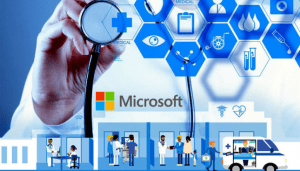Transportation Management Systems 2022

In this article, we will discuss the technologies used in transportation management systems (TMS), and the opportunities for TMS providers in 2022. Specifically, we will discuss the impact of digital technology on the transportation industry and discuss what we expect to see in this field in the next few years.
The market for TMS is dominated by North America, where local authorities place a great emphasis on creating connected infrastructures for smooth transit. This region is home to many leading vendors of transportation management systems, including Infor Inc., 3GTMS, Cerasis Inc., Manhattan Associates, and MercuryGate International Inc.
Technology in Transportation Management Systems
With customer expectations for same-day, two-day, and on-time delivery increasing, supply chains must innovate and invest in new technology. New TMS systems will offer advanced features and help logistics operations manage freight more efficiently. Predictive analytics powered by machine learning will make TMS more intelligent. This technology will also help businesses evaluate carriers, identify high-risk loads, optimize routes, and plan capacity.
Technology in transportation management systems will also improve security and transparency. For example, smart connected sensors will increase visibility and efficiency across the supply chain. Blockchain technology is also being implemented to improve logistics operations. While there are still challenges associated with the technology, it will enable greater traceability and security. Transportation management systems are constantly evolving as new technologies and software are developed.
The transportation management systems market is expected to grow at a notable rate. Despite the growing adoption of cloud-based solutions, the on-premise segment is expected to retain a majority of the market share in 2021. The reason for this is that many businesses prefer an on-premise solution. This type of solution provides convenient access to a server, adequate security, and customization capabilities.
Cerasis is a transportation management system that offers enhanced visibility and control over shipping processes. The transportation software allows users to track shipments and eliminate the need for manual processes such as tracking and contacting carriers. The transportation software includes features for truckload freight management, parcel management, transportation accounting, reverse logistics, and freight claims management. It also provides customizable workflows, EDI messaging, and custom logic.
Transportation management systems can provide visibility and collaboration with carriers, customers, and suppliers. In addition, they can help optimize unattended operations. Orders can be planned, shipments can be executed, and freight invoices can be approved for payment. With the help of TMS, customers and suppliers can easily track their shipments and ensure their delivery is on time.
The transportation management systems market is highly competitive and key players are investing heavily in research and development. One such company, MercuryGate International, added smart transportation features to its transportation management solution in February 2022. This new solution will help companies gain real-time supply chain insights. Other key players include 3GTMS, BluJay Solutions Ltd., and Cerasis, Inc.
Transportation software uses a high-tech optimization engine to help users create more efficient logistics networks. It can also help companies reduce costs by consolidating orders, streamlining location flow, and managing equipment. It can also provide real-time alerts on potential problems. This feature makes it easier for business owners to optimize their routes and capitalize on margins. In addition to reducing costs, these systems also provide tools to manage freight payments and billing.
Transportation management systems are now becoming affordable to small businesses, where freight costs are typically between $5 and $10 million. Many smaller companies can benefit from cloud-based solutions, which make the technology easier to use and scale. Some of these transportation management systems are integrated with existing ERP software or SCM solutions. Others can even be complemented with global trade management applications.
Opportunities for TMS Providers in 2022
Technology advancements are transforming the logistics and transportation sector, providing new opportunities for TMS providers. Artificial intelligence (AI), blockchain, and IoT are just a few examples of new trends that will help improve efficiency and customer satisfaction. This new transportation software will help businesses track, monitor, and control their shipments. In addition, they will help improve security and transparency.

According to the research, the global transportation management systems market will reach USD 9.22 billion by 2022 and grow at a 14.6% CAGR from 2022 to 2030. Growth is expected to be driven by unabated retail spending, advances in technology, and stronger international trade ties.
Large companies are investing heavily in procurement capabilities, and many leading TMS providers have already built procurement capabilities into their systems. In addition, more digital freight management players such as Uber Freight and Convoy have recently introduced procurement tools. Emerge, a startup that competes with Coupa is offering a free procurement tool.
In addition, TMS providers are expanding to include managed TM, non-asset fleets, and internal fleets. While the TMS market is still in its infancy, it is quickly growing and becoming a stand-alone platform with a focus on medium-sized shippers. However, before purchasing a new TMS, be sure to build a detailed requirement document that specifies what features and functions you’ll need, and then make an objective decision.
Transport management systems are increasingly becoming a central part of any supply chain management (SCM) or ERP solution. They help users plan and manage domestic and international shipments, and determine the best and cheapest means to transport goods. The market for TMS solutions involves various stakeholders, including designers, module developers, distribution channels, and end-users.
TMS vendors may offer customized integrations for their customers. Alternatively, they may provide a turnkey solution with add-on features. Some TMS vendors even provide customer support and online chat capabilities. This is an excellent way to evaluate TMS vendors and select the best one for your business.
The best TMS platform offers real-time tracking and automation. These features help companies improve efficiency and reduce costs. Some platforms also include tools for freight payments and billing. In addition, these tools provide visibility and alert users when something needs their attention. They also help business owners capitalize on margins.
TMS providers are advancing fast. They are expanding their capabilities and gaining traction in many industries. TMS vendors are becoming more flexible and integrated to meet the needs of shippers. Some are integrating multiple modes of transportation and ensuring maximum flexibility. These solutions have advanced beyond the basic functionality that many shipping providers already have.
As the supply chain grows increasingly complex, companies must streamline their transportation operations. To do so, they need to orchestrate orders between multiple locations and monitor the costs and performance of carriers. A transportation management system from an MPO can streamline this complex process and provide visibility across all modes of transport.
Impact of Digital Technology on the TMS Market
Digital technology is changing the way we think about transportation management systems. Previously, it was thought that TMS was only for large players, but with the advent of cloud-based solutions, this field is now more accessible to small and mid-size companies. The use of these systems is increasing as the need for real-time information grows.
The transportation management systems market is currently segmented by end-user, application, and region. Various regional and application-specific factors are driving market growth, and this report analyzes these trends and their impact on the market. This report also includes the impact of COVID-19 regulation, regional conflicts, and carbon neutrality on the global market.
Online shopping is changing the way businesses operate. For example, shippers are now offering flexible pick-up times and giving advance notice for loads. Additionally, digital technology is helping them maximize truck filling capacity and increase profitability. Optimization capabilities help TMS providers present multiple load options to carriers and calculate the true profitability of each load. These solutions can also reduce deadline miles and boost profitability. TMS solutions can be customized to meet the needs of each shipper.
The integration of new technologies into transportation management systems has been crucial in making them more effective and streamlined. Aside from cloud-based solutions, other emerging trends include the use of artificial intelligence and self-driving trucks. 5G networks continue to roll out, which is another trend driving the market.
The TMS market is expected to continue growing at a steady pace in the coming years. Major players have adopted various strategies, with partnerships proving to be the most common strategy from 2019 to 2022. In addition, new product launches will help these companies innovate while broadening their customer bases.
The introduction of mobile technologies has revolutionized the transportation industry. In addition to improving the overall customer experience, transportation software has improved the operational efficiency of transport companies. This technology can help employees work from anywhere. This wireless technology works like a computer in your pocket. By integrating the latest mobile technologies with professional operations, transportation companies can dramatically elevate their business.
The advent of cloud computing has also spurred the adoption of cloud-based TMS solutions. These solutions allow companies to better manage their logistics processes, share data, and collaborate with trading partners. They also provide real-time supply chain visibility. Cloud-based solutions also help companies optimize their processes and optimize their routes.
As freight costs continue to rise, companies are more aggressively looking for ways to improve their transportation performance. By acquiring a transportation management system, shippers can optimize their transportation operations and reduce costs. As a result, the TMS market will continue to grow over the next few years.
Alexia is the author at Research Snipers covering all technology news including Google, Apple, Android, Xiaomi, Huawei, Samsung News, and More.












